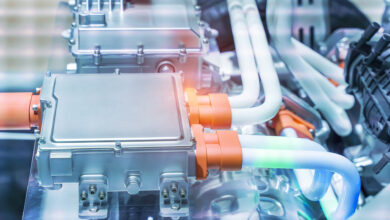How Routine Maintenance Boosts Your New Car’s Lifespan

Getting a new car is exciting! Keeping it running smoothly requires some work. Did you know that regular maintenance can help your car last longer and run more efficiently? Addressing small issues early can keep you safe on the road and save you significant money on major repairs later.
Let’s explore why staying on top of car care is one of the smartest decisions you can make for your vehicle.
The Importance of Routine Maintenance
Routine maintenance identifies issues before they escalate into major problems. Regular checks can prevent engine overheating, brake failures, and tire blowouts, keeping you safe on the road. Keeping up with maintenance helps your car operate more smoothly and can prevent unexpected breakdowns.
Key Maintenance Tips for New Car Owners
Understanding basic maintenance tasks can keep your car in optimal shape. Here are essential maintenance tips:
Oil Changes
Change your oil every 5,000 miles or according to your owner’s manual. Clean oil helps your engine run better and last longer. Skipping oil changes can lead to serious engine problems.
Tire Care
Check your tire pressure and tread often to stay safe on the road. Low pressure or worn-out tires can cause accidents or poor gas mileage. Rotate your tires every 5,000 to 7,500 miles to keep them wearing evenly.
Brake Checks
Pay attention to how your brakes feel and sound when you drive. If they squeak, grind, or feel weak, have them checked immediately. It’s a good idea to have them looked at during regular service visits.
Fluid Levels
Your car needs several fluids to work properly, like coolant, brake fluid, and windshield washer fluid. Check these fluids regularly and top them off if they are low. This helps keep your car running smoothly and safely.
Battery Maintenance
Look at your battery now and then to make sure the connections are clean and tight. If you notice white or green buildup, the battery may be corroded and will need cleaning. Most car batteries typically last 3 to 5 years.
Belts and Hoses
Check the belts and hoses under your hood for cracks or signs of damage. These components help your engine function properly and keep it cool. If they break, your car could overheat or stop running.
Creating a Maintenance Schedule
Establishing a maintenance schedule is critical. New car owners should consult the manufacturer’s guidelines for recommended service intervals. Marking these dates on your calendar will help you stay organized and prevent lapses in critical maintenance tasks.
Additionally, keeping a record of all maintenance work conducted will assist you in tracking your vehicle’s health over time. If you’re thinking about upgrading or just curious about your options, you can browse new cars for sale here.
Cost-Effectiveness of Regular Maintenance
Routine maintenance is cost-effective long-term. Regular maintenance can extend your car’s lifespan and is typically more affordable than unexpected repairs due to neglect. Addressing minor issues now can prolong the lifespan of vital components such as your engine, transmission, and tires.
Taking Action to Protect Your Investment
As a new car owner, taking action to implement a maintenance routine can greatly benefit you. By investing a small amount of time and money into routine maintenance, you significantly enhance the reliability and longevity of your vehicle. For those looking to make an investment in a reliable and durable vehicle, make sure to find the right match for your needs.
Is this article helpful? Keep reading our blog for more.




